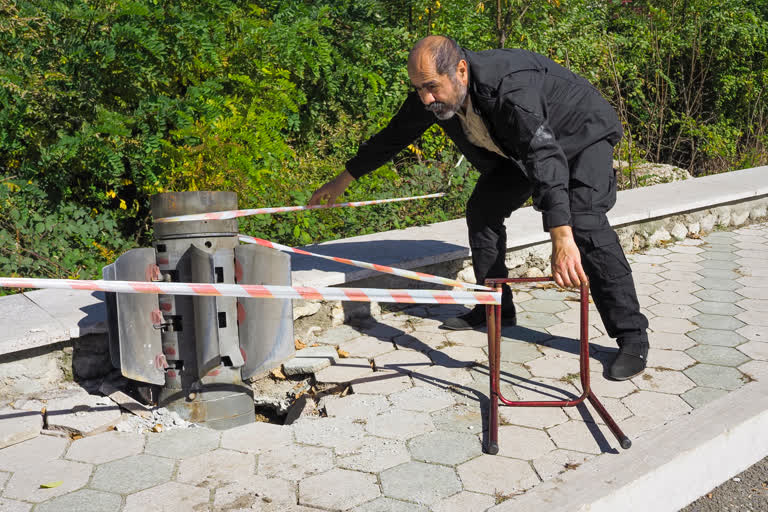Yerevan: More reports of shelling on Monday challenged the new cease-fire in the conflict over the separatist territory of Nagorno-Karabakh, where heavy fighting between Armenian and Azerbaijani forces has raged for over three weeks.
The Nagorno-Karabakh military said Monday that Azerbaijani forces in the morning resumed shelling in the northern and the southern directions. Armenian Defense Ministry spokeswoman Shushan Stepanian also reported "heavy fighting" in the southern direction of the conflict zone.
Azerbaijan, in turn, accused Armenian forces of shelling its Goranboy, Terter, and Aghdam regions overnight and targeting the Aghjabedi region in the morning.
Watch: A deadly airstrike rattles Azerbaijani city
Also Monday, Azerbaijan's President Ilham Aliyev announced that the country's forces have taken control over 13 villages in the Jabrayil region near the Iranian border.
Nagorno-Karabakh lies within Azerbaijan but has been under the control of ethnic Armenian forces backed by Armenia since a war there ended in 1994. By the time the war ended, Armenian forces not only held Nagorno-Karabakh itself but also captured substantial areas outside the territory borders.
According to Nagorno-Karabakh officials, 710 of their servicemen have been killed the fighting since Sept. 27. Azerbaijan hasn't disclosed its military losses, but says 60 civilians have died so far and 270 have been wounded.
Read also: Explained: Widening Armenia, Azerbaijan conflict
The recent fighting involved heavy artillery, rockets and drones and has continued despite repeated calls for the cessation of hostilities coming from around the globe. It marked the biggest escalation of a decades-old conflict over Nagorno-Karabakh and raised concerns of a wider conflict involving Turkey, which has publicly supported Azerbaijan, and Russia, which has a security pact with Armenia.
On Oct. 9, Moscow hosted foreign ministers of Armenia and Azerbaijan. After more than 10 hours of talks, they announced a cease-fire deal, which was violated minutes after it took force.
The new truce announced on Saturday followed Russian Foreign Minister Sergey Lavrov's calls with his counterparts from Armenia and Azerbaijan, in which he strongly urged them to abide by the Moscow deal. Despite the agreement, both sides have reported new attacks.
AP



